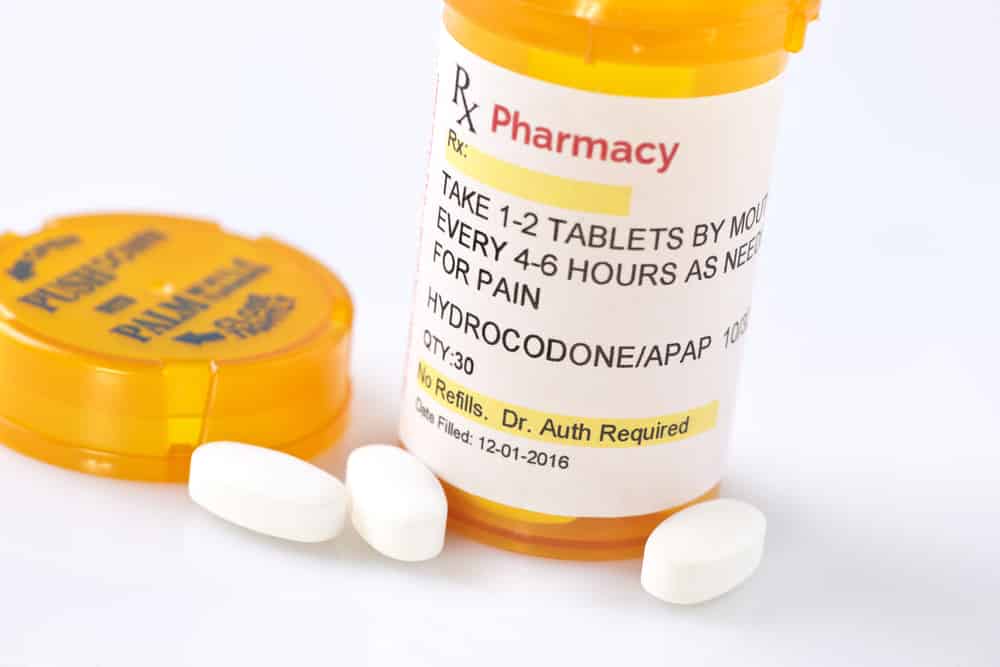Warning signs and symptoms that indicate use and abuse of Hydrocodone including signs, symptoms and how to know if someone is on Hydrocodone.
What To Know About Hydrocodone
Hydrocodone is a drug included in prescriptions to treat pain ranging from moderate to severe. There are both generic and brand-name versions of hydrocodone available. Generic hydrocodone/acetaminophen is often prescribed because it’s covered by many insurance plans.
Hydrocodone is a medicine that’s classified as a narcotic analgesic, which means it stops pain by impacting the central nervous system.This medicine is also usually combined withacetaminophen as well, which relieves pain and reduces fever. Acetaminophen itself isn’t habit-forming, but it does carry dangerous side effects when large amounts are used, including liver damage.
Many people wonder how to know if someone is on hydrocodone because it’s frequently prescribed and also abused. When someone is on hydrocodone for an extended period of time,it can lead to both mental and physical dependence. However, if someone follows the therapeutic applications of the drug that are part of their prescription, they reduce the likelihood of abuse.
Some of the common brand names of hydrocodone include:
New Year, New Beginnings.
Whether you are struggling with addiction, mental health or both, our expert team is here to guide you every step of the way. Don’t wait— reach out today to take the first step toward taking control of your life.
- Vicodin
- Vicodin ES
- Vicodin HP
- Lortab
- Lorcet
- Norco
- Zydone
- Hycet
- Maxidone
- Verdrocet
- Xodol
- Zolvit
Some of the side effects of being on hydrocodone/acetaminophen, whether the drug is being used as prescribed or abused, can include:
- Lightheadedness
- Dizziness
- Sedation
- Nausea
- Vomiting

What To Know About Hydrocodone Use
According to statistics compiled by the National Institutes of Health (NIH), an estimated 20percentof people in the U.S. have taken prescription drugs such as Vicodin without a prescription. There is also a belief that using prescription medicines outside of therapeuticpurposesis on the rise. The Drug Enforcement Administration (DEA) reports that there were more than 24 million people age 12 and above in 2013 that used hydrocodone for what they described as non-medical reasons.However, due to legislative efforts this number fell to 11.5 million people in the2016 survey.
What Happens When Someone Is On Hydrocodone for a Long Time?
While there is a risk of hydrocodone/acetaminophen being habit-forming regardless of how long you take it, the risk of becoming mentally or physically dependent on it increases afterlong-term use. Mental dependence,which is also referred to as addiction,is less likely to occur when you use the medicine exactly as instructed by your care provider, but physical dependence can occur even if you follow therapeutic indications.
Common Signs Someone Is on Hydrocodone
When someone is on hydrocodone, there are some signs that can be visible to the people around them. Some of the common signs someone is using hydrocodone may include:
- Feeling overly euphoric or happy
- Appearing to be sleepy, lazy or lethargic
- Reduced sense of stress
- Numbness
The reason for many of the positive effects of hydrocodone is that it impacts the brain’s reward system, which is also whyit’s so easy to become addicted to drugs like hydrocodone.
Some of thenegative side effects of hydrocodone usecan include:
- Anxiety
- Dizziness
- Fatigue
- Constipation
- Headache
- Nausea
- Sleeping problems
- Nightmares
- Muscle weakness
- Itchiness
Severe side effects of being on hydrocodone, particularly when large amounts are taken, may include:
- Obstruction of the bowels
- Breathing trouble
- Slow or irregular heartbeat
- Problems urinating
- Vomiting
How To Know Someone is Addicted to Hydrocodone
You may be wondering not only if someone is takinghydrocodone, butalsoif they’re abusing it or addicted to it. Addiction is one of the most dangerous side effects of using hydrocodone over the long-term.
When you take hydrocodone over the long-term, or sometimes even for a short period, the body builds up a tolerance to it. That means greater amountsof hydrocodonewill be needed to achieve the same effects, and in some cases, tolerance can developafter taking just a fewdoses.
When someone is addicted to hydrocodone or dependent on it, it can lead to a wide range of physical, behavioral and lifestyle problems.
For example, signs someone is addicted to hydrocodone may include problems at school or work, difficulty meeting commitments and obligations, and relationshipconflictswith friends, family, and other loved ones.
Other signs someone is on hydrocodone and alsopotentiallyaddicted to or dependent on the drug may include:
- Taking too much at a time
- Not following instructions if prescribed hydrocodone
- Mixing hydrocodone with other substances,including alcohol
- Taking hydrocodoneafterit’s no longer needed for medical reasons
- Faking symptoms or an injury to get prescriptions
- Obtaininghydrocodoneillegally and using it without a prescription
- Doctor shoppingto obtainmultiple prescriptions
Withdrawal symptoms may also be a sign someone is dependent on hydrocodone. Symptoms of hydrocodone withdrawal include cold chills and shivering, anxiety, insomnia, diarrhea, hallucinations, aches, sweating, vomiting, irregular heartbeatand depression.
It’s extremely important that anyone prescribed hydrocodone follow their doctor’s instructions precisely.They shouldn’t ever take larger doses than recommended or take it more often than prescribed. Failing to follow these directions increases the risk of dependence, liver damage andhydrocodone overdose.
Treatment for addiction to opioids, including hydrocodone,can be difficult, particularly during withdrawal.However,if someone is on hydrocodone and is abusing the drug, it’s important they seek help. Long-term side effects of opioid abuse, including the use of hydrocodone, can not only increase the likelihood of using other drugs like heroin, but canalsolead to overdose, serious health problems, and death.
Drug treatment centers are designed to help peoplewho are addicted tohydrocodone. If you recognize symptoms ofhydrocodone addiction,it’s important to seek help either for yourself or your loved one.


